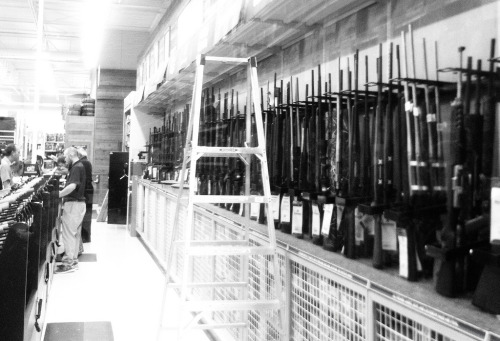University of California, Irvine: Aiming to quell heated national debate about gun control with factual answers, two UC Irvine mathematicians have designed parameters to measure how to best prevent both one-on-one killings and mass shootings in the United States. Their paper appears Friday in the journal PLOS ONE.Basically, the researchers looked at data going back as far as WI, crunched the numbers, compared total gun bans, an “everyone armed" scenario, and everything in between, and came up with a result. “After running the numbers, they found that in more common domestic and one-on-one crimes, reduced legal gun availability – if properly enforced – is likelier to lower deaths," the report tells us. “But in rare mass shootings, armed citizens might save lives if sufficiently trained to avoid accidentally shooting fleeing bystanders."
“It’s time to bring a scientific framework to this problem,” said lead author Dominik Wodarz, a mathematical biologist who works on disease and evolutionary dynamics. His co-author and wife, Natalia Komarova, a mathematician who studies biomedical and social trends, added: “Can we design a rational way to argue about guns?”
Both were appalled not just by the December shooting deaths of 20 youngsters and eight adults in Newtown, Conn., but also by the bitterly emotional dispute over weapons that erupted anew. They decided to put their professional expertise to work.
“This debate cannot be settled satisfactorily by verbal arguments alone, since these are often driven by opinion and lack a solid scientific backing,” the authors write. “What is under debate is essentially an epidemiological problem: How do different gun control strategies affect the rate at which people become killed by attackers, and how can this rate be minimized?”
Gun control opponents will glom onto that last bit as proof that arming everyone is advisable, but look at all those qualifiers: “rare mass shootings," “might," “if." Also note that the researchers believe that the “armed hero" scenario could potentially add to the carnage. In any case, the total gun death toll from mass shootings compared to all other gun deaths is tiny. The fact is that gun control reduces the rate of gun deaths.
According to the report, the researchers say that more study with more complete numbers “could strengthen their results." But that data is missing, because “federal funding for gun control research was essentially nonexistent for nearly two decades."
And before you dismiss the study as biased somehow, consider that it was heavily reviewed. “A large number of peer reviews – 11 in total – were solicited by journal editors; two or three are the norm," we’re told. “A wide array of opinions were expressed, ranging from enthusiastically positive and constructive to a critic who stated that scientific methods would never be useful in this area."
"If the current discussion could be steered toward science, rather than having a heated debate without much of a logical foundation, a big step forward toward saving lives would be achieved," the researchers said.
Somehow, I doubt the gun lobby has much interest in a fact-based, logical approach to firearm policy.
[photo by Patrick Feller]






